Every 7.4 seconds, a woman in China faces domestic violence. Can the tide be turned?
About one in four women in the world’s most populous country are said to have endured domestic abuse. The programme Undercover Asia speaks to victims, experts and an ex-abuser about the deep-seated problem.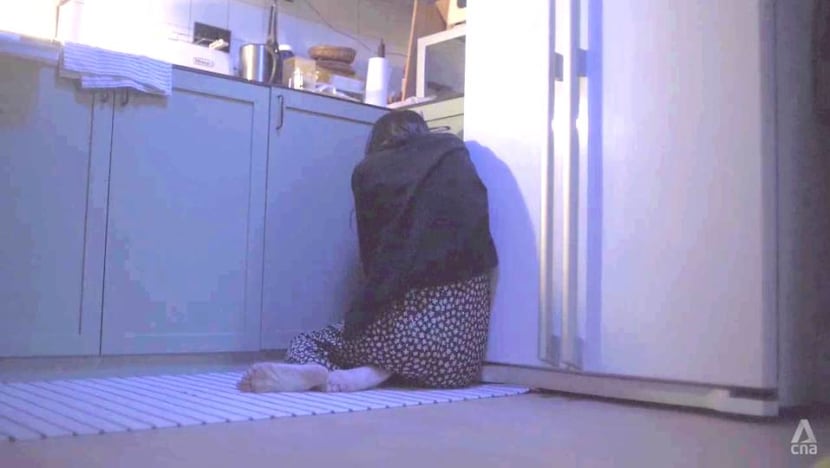
Domestic violence in China is rooted in traditional values associated with Confucian patriarchy.

Neo Chai Chin
06 May 2021 06:15AM (Updated: 28 Jun 2021 03:27PM)
BookmarkShare
BEIJING: After enduring six years of attacks, Shaanxi native Yang Xi killed her husband.
Life with him had been “worse than hell”, but the last straw was when he came up to her with a rope and axe. He threatened to slaughter her family, including her child, if she did not kill herself.
ADVERTISEMENT
“All those years, he’d often threaten (me) and then make good on those threats,” the 41-year-old recounted. “In that instance, all the grievances accumulated over six years — including him beating my mother and child — finally erupted.”
That night, she picked up the axe and killed him. “I didn’t expect myself to have the guts to do such a thing,” she said.
“Afterwards I was frightened, yet relieved to know that no one would beat me, my mother, my father and my child any more.”
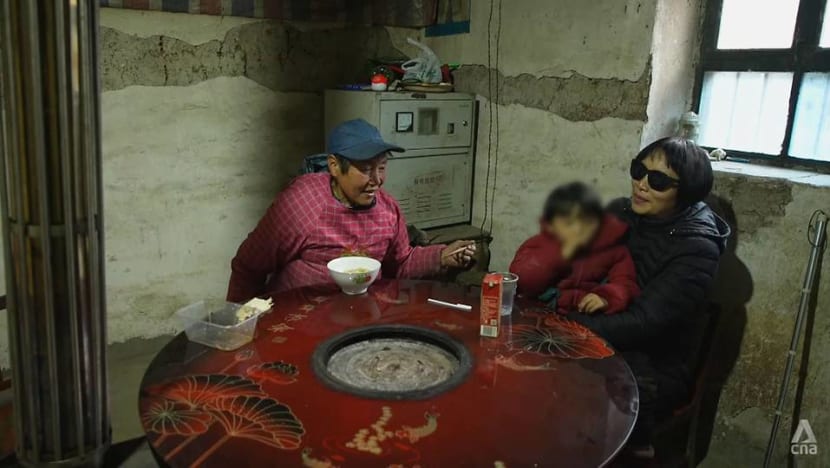
It was not her first abusive relationship. When she was 17, her fiancé became violent after she asked to delay their wedding. According to her mother, he was of “inferior” character and afraid Yang would change her mind.
Over two years, their relationship soured. One day, he pushed her down when they were arguing and gouged her eyes out with his hands. He was sentenced to death, according to her.
ADVERTISEMENT
Feeling like she could not survive as a blind, unmarried woman in a poor rural area, she got married twice — the second time to the man who beat and threatened her.
She was sentenced to 12 years in jail for killing him and released after eight years. In jail, where she learnt how to be a masseuse, Yang said she met female inmates who had been similarly abused.

About one in four women in China are said to have experienced domestic violence. Every 7.4 seconds, another woman falls victim to this deeply entrenched problem, according to the All-China Women's Federation, the country’s largest women’s organisation.
Can the world’s most populous nation stem the scourge, asks the programme Undercover Asia.
‘PATRIARCHAL POWER’
ADVERTISEMENT
China remains a traditional society that prizes harmony in the household, arising from Confucian patriarchy.
And in some regions, wife-beating is a symbol of “patriarchal power”, said Ma Sainan, the chief lawyer handling marriage and family cases at Jiali Law Firm.
READ: Raped, beaten and sold in China: Vietnam's kidnapped young brides
“(Some men) don’t think of it as something immoral and may even take pride in it.”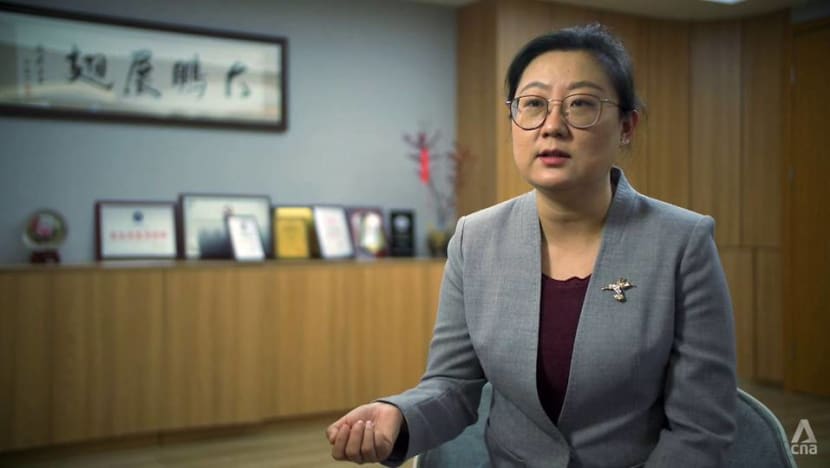
Many women endure more than 30 episodes of violence before they seek help or go to the police, noted Lin Shuang, an anti-domestic violence volunteer in Shanghai for eight years.
ADVERTISEMENT
Even after divorcing or leaving their abuser, some victims are unable to break free.
In September, a 30-year-old vlogger from Sichuan province was doused with petrol and set alight by her ex-husband while she was live-streaming at home. Lamu’s death, after she suffered 90 per cent burns, stoked a public outcry.
READ: Chinese vlogger dies after being set on fire by ex-husband
Although a higher proportion of victims are in rural areas, domestic violence is very much present in cities. Abusers may, however, be more “secretive” in order to keep up a “glamorous” front to neighbours and colleagues, said Ma.
Shanghai resident Wei La (not her real name), a successful entrepreneur, told Undercover Asia how a “sensitive soul” she met in 2019 quickly became a manipulative man.
One night when she was a few minutes late arriving at his place, his suspicions about her whereabouts turned violent. He rained punches on her head, kicked her stomach and sat on her.
“I felt like I was going to die,” she said.
When she seized a window of opportunity to run out of the house, he chased her and yanked her out of a taxi. She managed to get to a friend’s place only after a couple passing by stopped to help.
He harassed her and threatened to harm her family and make a scene at her company. “My friend asked me why I didn’t leave him, and I had nothing to say,” she said.
“It’s not that I didn’t want to leave him, but he’s like a piece of chewing gum. Even after you tear it off, there are remnants.”
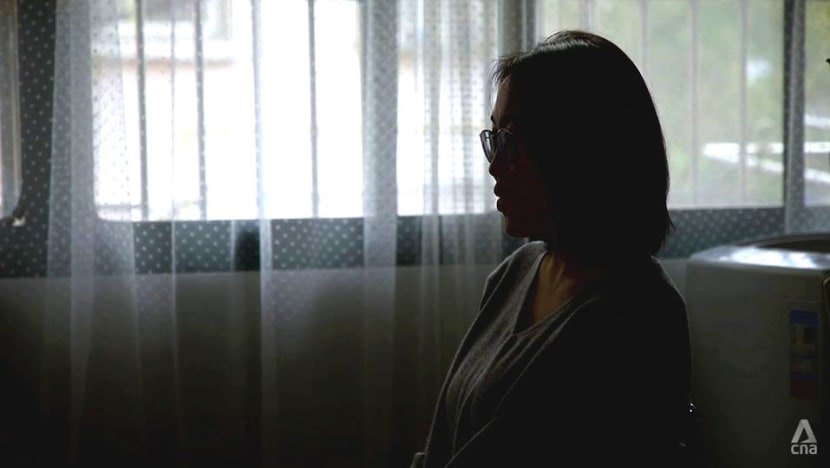
GAPS IN THE LAW
The authorities have taken steps in recent years to address domestic violence, but activists say gaps persist. They also highlight the role men play in ensuring that harmful norms and notions do not get passed to future generations.
READ: These are the ‘leftover men’ of China, who just want to get married
About 157,000 Chinese women commit suicide per year, and in a 2016 study by the All-China Women’s Federation, 60 per cent of the cases were related family violence.That year, the government introduced a domestic violence law that allows victims to obtain protection orders against their abusers.
State media reported that complaints about domestic violence made to the women’s federation decreased by 8.4 per cent in 2019 compared to 2018. But observers say this is not the full picture.

“When grievous harm is inflicted, the judge still takes into account family conflict as a mitigating factor for a lighter sentence,” cited Ma, who feels that the law does not go far enough.
“It’s hard to understand. If you hit someone in the street, you may face jail time of three to seven years. However, for violence in a family setting, one might get only three years, with it hardly ever going to seven years.”
Some police officers are insufficiently trained to deal with domestic violence; for instance, they may tell victims their injuries are “too minor”, said Lin.
According to her, victims must do “a lot of work” after going to the police, such as collecting evidence and documenting their injuries.
WATCH: China's struggle with domestic violence — A potent patriarchy (46:12)
More victims are now willing to dial the police hotline, and the law requires that all calls be accepted, noted Feng Yuan, co-founder of Equality, a women’s rights and gender equality non-governmental organisation in Beijing.
“But what’s the problem now? (It’s that) calls aren’t taken properly. When the police hear that it’s a family matter, they’d just give you some casual advice,” she said.
“Or even when they hear that it’s domestic violence, they just dismiss it as a family matter and don’t deal with it properly.”
AN EX-ABUSER’S STORY
As part of efforts to reduce domestic violence against women, the China White Ribbon Volunteers Network — launched in 2013 by sexologist Fang Gang — counsels abusers.

One of its volunteers, Gu Wei, used to beat his wife so badly — with fist clenched “like an iron hammer” — over four years that she filed for divorce.
While searching online for information on claiming child custody, he chanced upon a television documentary about domestic violence that, incidentally, featured Yang.
He felt “miserable” after watching the women recount their experiences. He called a hotline number provided and spoke to a psychologist trained to work with abusers. He realised he had learnt violence from his father and other male relatives.
READ: ‘Masculinity crisis’ in China leads parents to enrol kids in boot camp
His parents also saw him mistreating his wife but sided with him. Today, he is “worried” his son will pick up violent behaviour from him.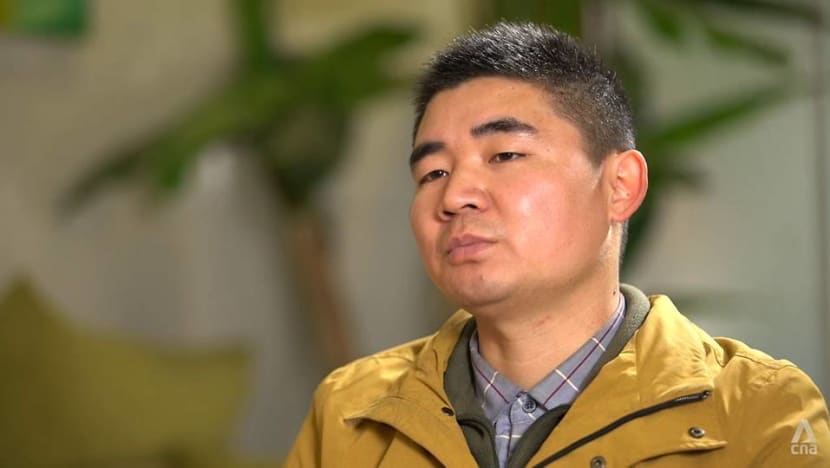
Now divorced, he has explained to his son that he had hurt the boy’s mother, so she had to leave “to protect herself”. He tells the nine-year-old that they should respect her, and lets him visit her.
In 2018, the ex-abuser performed in a play called The Penis Monologues, inspired by American playwright Eve Ensler’s The Vagina Monologues. Written by Fang, it explores masculinity issues including domestic violence.
In it, Gu shared that he had asked his ex-wife for five years to prove that he has given up his abusive ways. “I want these violent practices to stop in my generation,” he said.

